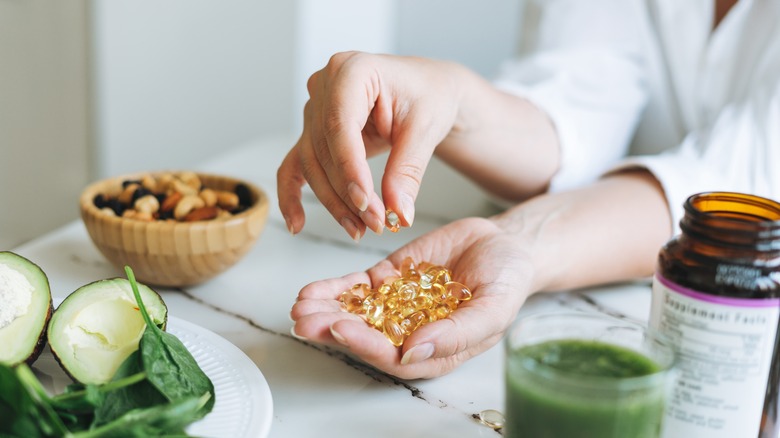Vitamin D Supplements Versus Sunshine: Which Is More Effective
Vitamin D is an important vitamin for our health. It is responsible for various functions, including immune system health and keeping bones and muscles strong (via National Institutes of Health). Vitamin D can be absorbed in the body in several ways, including through sunlight and with a supplement. It can also be absorbed through food, but it is almost impossible to get enough vitamin D through food alone (via Mindbodygreen). This leaves your task of getting enough of this vitamin down to sunlight or supplements.
A recent study with this goal in mind looked at how effective each of these methods was and the winner was clear. Taking a supplement significantly increased levels of vitamin D in the body while being exposed to sunlight did not show much difference. This is likely because there are many factors that affect how much vitamin D you can get from sunlight. The further you live away from the Equator, the less likely you will be to access UVB sunlight, which is what turns into vitamin D when it hits our skin, during the winter months. People who live in the northern United States, for example, will be able to produce very little vitamin D from sunlight between November and February (via Oregon State University). Sunscreen also blocks UVB rays, which means wearing sunscreen will block the amount of vitamin D you can produce.
What to know about vitamin D supplements
According to Mindbodygreen, many people could benefit from taking a vitamin D supplement. It is extremely difficult to get enough of this vitamin through sunlight and food alone. It is recommended that people up to 70 years old get 600 international units (IU) of vitamin D each day (via Mayo Clinic). However, many vitamin D supplements contain ineffective levels and won't do much good. When taking a supplement, it is recommended that you take up to 4,000 IU a day in order to keep your levels high.
You should not exceed this amount each day to avoid toxicity. Vitamin D is fat-soluble, which means that it dissolves in fat and is stored in your body's tissue. Extra amounts of fat-soluble vitamins are not flushed out of your system so it is easy to take too much (via Healthline). Symptoms of a vitamin D overdose include nausea, vomiting, poor appetite, constipation, and kidney stones.


